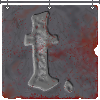This article was written by the god Shadowfax,
and posted on May 10, 2011. It was last updated December 23, 2014.
Why do you successfully cast a spell sometimes but fail other times? What does cast ability really do for you? This article will answer these questions and much, much more!
For an introduction to spellcasting, please see Dentin's Spellcasting For Newbies article. Also check out this article.
BACK - Alter Aeon Article Index
Why do you successfully cast a spell sometimes but fail other times? What does cast ability really do for you? This article will answer these questions and much, much more!
For an introduction to spellcasting, please see Dentin's Spellcasting For Newbies article. Also check out this article.
The Cast Check
Spells have several prerequisites that are checked every time you try to cast a spell. A series of
tests are run, checking your cast level, attributes and knowledge level. This is the "cast check".
Step 1: Mana Check
All spells require a certain amount of mana to be cast. This mana is consumed and subtracted from
your total amount of mana when the spell is cast. If you do not have enough mana, the spell will
fail.
Equipment with the MANA effect can directly improve your mana, as well as having higher intelligence, wisdom and age.
Equipment with the MANA effect can directly improve your mana, as well as having higher intelligence, wisdom and age.
Step 2: Level Check
Every spell has a minimum level that you must have in order to learn it, such as
Mage 1 for magic missile. To cast the spell, your cast level must be equal to this or higher, or a level check will be
made. You can modify the effective cast level of each class using equipment with the corresponding
CAST_LEVEL effect.
For example, you are level 10 mage. You cast magic missile, which has a cast level of mage 1. In this example, your mage level is greater than 1, so you have no problems here. No level check is required.
Let's say then you learn fire shield, which is a level 10 mage spell. You try to cast the spell later while wearing equipment that gives you -1 mage cast level. Your effective cast level is now only 9 mage, meaning that you will have to pass a level check. If your effective cast level is lower than the required level for the spell by more than a level or two, you will find it very difficult to pass this check.
If you pass, the game will proceed to the next check. If not, you will see this message:
You are too low level to cast that spell reliably.
For example, you are level 10 mage. You cast magic missile, which has a cast level of mage 1. In this example, your mage level is greater than 1, so you have no problems here. No level check is required.
Let's say then you learn fire shield, which is a level 10 mage spell. You try to cast the spell later while wearing equipment that gives you -1 mage cast level. Your effective cast level is now only 9 mage, meaning that you will have to pass a level check. If your effective cast level is lower than the required level for the spell by more than a level or two, you will find it very difficult to pass this check.
If you pass, the game will proceed to the next check. If not, you will see this message:
You are too low level to cast that spell reliably.
Step 3: Attribute Check
As shown in spell listings, every spell has a minimum stats
that one must have in order to learn or cast that spell. For mages, necromancers and
druids, those stats are intelligence and wisdom. For clerics, wisdom and charisma. Though it is possible to
cast a spell without meeting those requirements, if you have less than the minimum, you will have to
pass an attribute check.
If you fail, the game will send you a message like this:
You try valiantly, but can't seem to make part of the spell work.
Followed by an explanation of which attribute you failed at, such as:
(your wisdom is too low to cast this spell effectively)
Note that the lower int, wis or chr you have than the minimum, the less likely are your chances of passing this check.
If you have having trouble casting spells due to low intelligence, wisdom or charisma, try wearing equipment that improves those attributes. In long run, it may be worthwhile to train the deficient attribute.
If you fail, the game will send you a message like this:
You try valiantly, but can't seem to make part of the spell work.
Followed by an explanation of which attribute you failed at, such as:
(your wisdom is too low to cast this spell effectively)
Note that the lower int, wis or chr you have than the minimum, the less likely are your chances of passing this check.
If you have having trouble casting spells due to low intelligence, wisdom or charisma, try wearing equipment that improves those attributes. In long run, it may be worthwhile to train the deficient attribute.
Step 4: Knowledge Check
This is the final check that the game makes before allowing you to cast a spell. Your knowledge level
is displayed in your 'spells' or 'practices'
commands. Whether good, bad or perfect, this description demonstrates your familiarity with the
spells. Each descriptor represents a percentage (0-100) that indicates exactly how well you
know the spell. The knowledge check is made by rolling a 100-sided die, and if your knowledge level
is equal to or greater than the number rolled, you pass the check.
(A discussion of knowledge level for spells can be found here.)
CAST_ABILITY will add to or subtract from your knowledge level of a spell. For example, if you know a spell "very good" (85) and wear a piece of equipment that gives you +10 cast ability, you are considered to have 95 for the purposes of this check. Note that cast ability will add or subtract this number from all spells, regardless of class or how well you know them. Positive cast ability can give you the ability to succeed even at spells you haven't learned, but, likewise, enough negative cast ability can cause you to constantly fail spells, even those you have at "perfect".
You can attempt to cast any spell unlearned (but for spells with dependencies, you have to be familiar with the dependent spell). If you haven't learned a spell but are still able to pass the previous steps, you will see this message:
You don't know that spell at all, but attempt to cast it anyway.
(Even so, since your knowledge level is zero (0), you can never pass the knowledge check for an unlearned spell unless you use positive cast ability equipment. Furthermore, if you manage to cast a spell by virtue of cast ability, there is no possibility of improving that spell in that particular casting. This means you cannot train up spells you don't know using cast ability equipment.)
If you fail to pass the knowledge check because of your lack of knowledge, you will see something like this:
You fail to cast the spell.
You will need to improve your knowledge of the spell in order to avoid this fail.
If you fail to pass the knowledge check due to negative cast ability, you will see this instead:
Something you are wearing inhibits your ability to cast the spell.
If you have this problem, try removing the equipment with the negative cast ability, or use positive cast ability equipment to balance it out.
Generally, cast ability becomes less important the more your character progresses. As you perfect desired spells, you rely less on equipment to successfully perform them once your knowledge level alone becomes sufficient to pass this check.
(A discussion of knowledge level for spells can be found here.)
CAST_ABILITY will add to or subtract from your knowledge level of a spell. For example, if you know a spell "very good" (85) and wear a piece of equipment that gives you +10 cast ability, you are considered to have 95 for the purposes of this check. Note that cast ability will add or subtract this number from all spells, regardless of class or how well you know them. Positive cast ability can give you the ability to succeed even at spells you haven't learned, but, likewise, enough negative cast ability can cause you to constantly fail spells, even those you have at "perfect".
You can attempt to cast any spell unlearned (but for spells with dependencies, you have to be familiar with the dependent spell). If you haven't learned a spell but are still able to pass the previous steps, you will see this message:
You don't know that spell at all, but attempt to cast it anyway.
(Even so, since your knowledge level is zero (0), you can never pass the knowledge check for an unlearned spell unless you use positive cast ability equipment. Furthermore, if you manage to cast a spell by virtue of cast ability, there is no possibility of improving that spell in that particular casting. This means you cannot train up spells you don't know using cast ability equipment.)
If you fail to pass the knowledge check because of your lack of knowledge, you will see something like this:
You fail to cast the spell.
You will need to improve your knowledge of the spell in order to avoid this fail.
If you fail to pass the knowledge check due to negative cast ability, you will see this instead:
Something you are wearing inhibits your ability to cast the spell.
If you have this problem, try removing the equipment with the negative cast ability, or use positive cast ability equipment to balance it out.
Generally, cast ability becomes less important the more your character progresses. As you perfect desired spells, you rely less on equipment to successfully perform them once your knowledge level alone becomes sufficient to pass this check.
Success!
After passing all of tests, the spell is cast!
The spell may still need to overcome any defenses against magic that the target may have. Such defenses are described in detail in the Saving Throws and Resistances article.
The spell may still need to overcome any defenses against magic that the target may have. Such defenses are described in detail in the Saving Throws and Resistances article.
BACK - Alter Aeon Article Index










